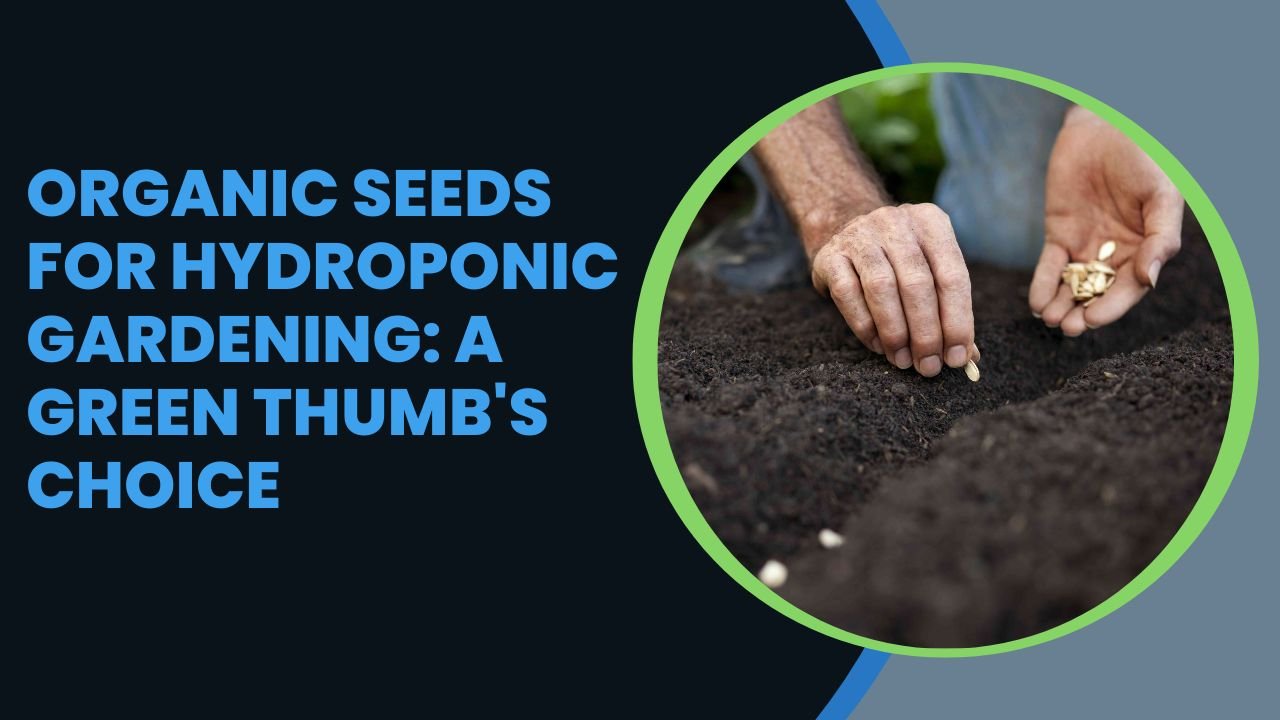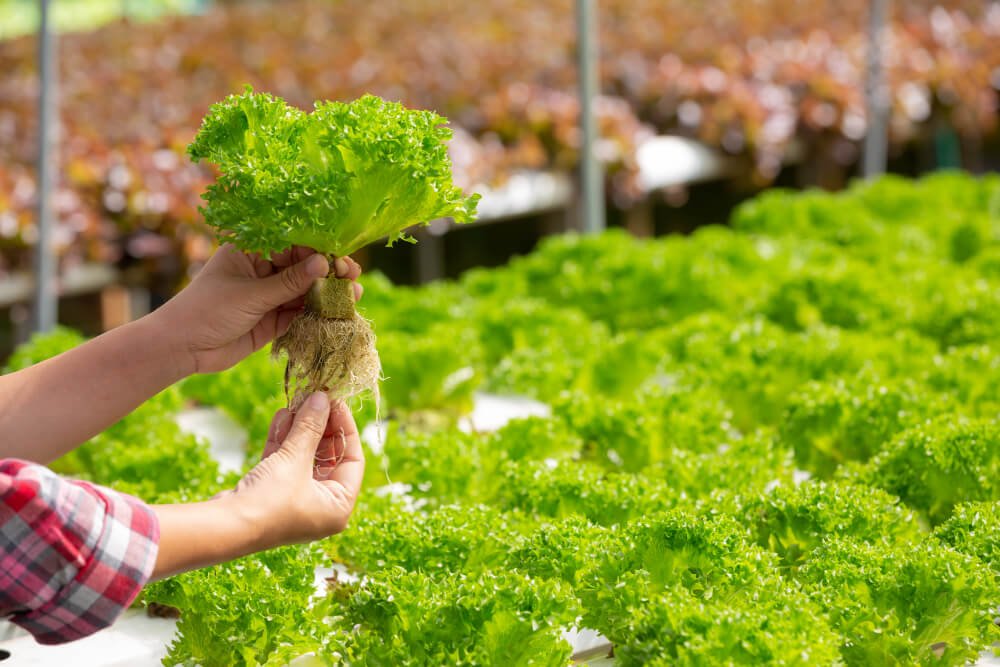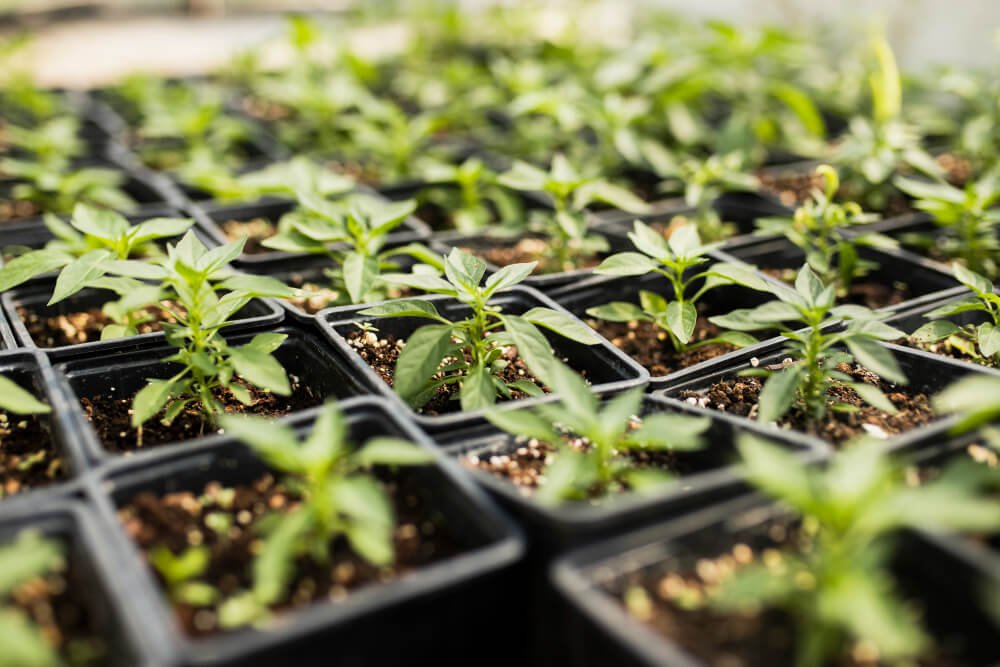Hydroponic gardening has gained significant popularity in recent years due to its efficient use of resources and the ability to grow plants in a controlled environment. When it comes to hydroponics, choosing the right seeds is crucial for a successful and sustainable harvest.
Organic seeds, in particular, offer numerous benefits and are becoming the preferred choice for many green thumbs. In this article, we will explore the significance of organic seeds in hydroponic gardening and provide valuable insights on selecting, sourcing, and planting them.

Understanding Organic Seeds
Organic seeds are cultivated from plants that have been grown organically, without the use of synthetic fertilizers, pesticides, or genetically modified organisms (GMOs). These seeds are produced through natural pollination methods and are free from chemical treatments. They retain the inherent qualities of the parent plant and contribute to the overall sustainability of the ecosystem.
Benefits of Organic Seeds
Organic seeds offer several advantages over conventional seeds. Firstly, they promote biodiversity by preserving heirloom and native plant varieties. Additionally, organic seeds are free from residual chemicals, ensuring that the resulting crops are healthy and safe for consumption. By supporting organic seed production, gardeners contribute to the conservation of genetic diversity and the protection of the environment.
Organic Certification
To ensure the authenticity and quality of organic seeds, it is important to look for organic certification labels. These labels indicate that the seeds have been produced in accordance with strict organic standards. Organizations such as the United States Department of Agriculture (USDA) and the European Union Organic Certification regulate and certify organic seed producers, providing consumers with confidence in the integrity of the seeds they purchase.
Read Also: The Ultimate Guide to Vegetable Seeds for Container Gardening
Hydroponic Gardening

Hydroponic gardening is a soil-less method of growing plants, where nutrient-rich water is used as the medium instead. This method allows plants to grow faster and produce higher yields compared to traditional soil-based cultivation. Hydroponic systems can be set up indoors or outdoors, making them ideal for urban gardening and areas with limited space.
What is Hydroponic Gardening?
Hydroponic gardening involves creating a controlled environment where plant roots are exposed to a nutrient-rich water solution. This technique provides plants with essential nutrients directly, resulting in faster growth and efficient nutrient uptake. The absence of soil also reduces the risk of soil-borne diseases and allows for better control of pH levels and nutrient concentrations.
Advantages of Hydroponic Gardening
Hydroponic gardening offers numerous advantages for both commercial growers and home gardeners. Firstly, it allows for year-round cultivation, overcoming seasonal limitations. Secondly, it requires significantly less water compared to traditional farming methods. Additionally, hydroponic systems are scalable and can be tailored to suit various plant species and growth stages. The controlled environment also reduces the reliance on pesticides and herbicides, making it a more sustainable choice.
Read Also: Discover the Beauty of Heirloom Seeds for Container Gardening
The Importance of Organic Seeds in Hydroponic Gardening

When practicing hydroponic gardening, the choice of seeds plays a vital role in the overall success and sustainability of the system. Organic seeds offer specific advantages that align with the principles of hydroponics.
Purity and Quality
Organic seeds are bred to maintain their genetic integrity and are less likely to be contaminated with GMOs or chemically treated substances. By selecting organic seeds, hydroponic gardeners ensure that their plants are pure and untainted, resulting in healthier and more natural produce.
Environmental Considerations
Hydroponic gardening aims to minimize the environmental impact of food production. Organic seeds complement this objective by contributing to sustainable agriculture practices. By avoiding the use of synthetic fertilizers and pesticides, organic seeds promote healthier ecosystems, protect pollinators, and reduce water and soil pollution.
Read Also: Burpee Organic Seeds: Your Go-To for Successful Gardening
Selecting Organic Seeds for Hydroponic Gardening
Choosing the right organic seeds for hydroponic gardening requires careful consideration. Several factors influence seed selection, including seed variety and adaptability, resistance to diseases and pests, and the use of non-GMO and open-pollinated seeds.
Seed Variety and Adaptability
Different plant species and varieties exhibit varying growth habits and requirements. It is essential to select seeds that are well-suited for hydroponic cultivation. Look for seed varieties that have been specifically bred or adapted for soil-less systems, as they tend to perform better and produce higher yields.
Non-GMO and Open-Pollinated Seeds
Genetically modified organisms can have unknown effects on the environment and human health. Choosing non-GMO seeds ensures that your hydroponic garden remains free from genetically engineered crops. Open-pollinated seeds, on the other hand, allow for seed saving and future cultivation, maintaining genetic diversity and preserving traditional plant varieties.
Disease and Pest Resistance
In hydroponic systems, where plants are grown in close proximity, disease and pest management is crucial. Opt for organic seeds that are known for their resistance to common hydroponic pests and diseases. This reduces the need for chemical interventions and ensures the long-term health of your garden.
Read Also: Planting Organic Herb Seeds: Enhancing Flavor and Health in Your Garden
Sourcing Organic Seeds for Hydroponic Gardening
Organic seeds for hydroponic gardening can be obtained from various sources. Organic seed suppliers and retailers specialize in providing a wide range of organic seed varieties suitable for hydroponic cultivation. Additionally, seed saving and sharing communities offer opportunities to exchange and preserve heirloom and open-pollinated seeds.
Organic Seed Suppliers and Retailers
Numerous organic seed suppliers and retailers cater specifically to hydroponic gardeners. These suppliers stock a diverse range of organic seeds, including those suitable for hydroponic systems. It is advisable to choose reputable suppliers that offer certified organic seeds and have a positive track record.
Seed Saving and Sharing Communities
Seed saving is an ancient practice that allows gardeners to collect and store seeds from their own plants for future use. Participating in seed saving and sharing communities enables hydroponic gardeners to exchange seeds, contribute to biodiversity, and preserve traditional plant varieties. Engaging with local gardening groups and online communities can help connect with fellow gardeners interested in seed saving.
Read Also: Will Heirloom Seeds Reproduce? Unraveling the Mystery of Seed Saving
Best Practices for Planting Organic Seeds in Hydroponics

Proper seed planting techniques are crucial for successful germination and healthy plant growth in hydroponic systems. Pay attention to seed depth, moisture levels, and environmental conditions to maximize germination rates and ensure robust plant development.
Germination and Seed Starting
Begin by selecting a suitable growing medium for seed starting in your hydroponic system. Rockwool cubes, peat plugs, or vermiculite are commonly used. Pre-soak the seeds in water or a mild organic seed starting solution to enhance germination. Place the seeds in the growing medium at the recommended depth and maintain optimal temperature and humidity levels.
Transplanting and Maintenance
Once the seedlings have emerged and developed a strong root system, they can be transplanted into the hydroponic system. Follow the specific guidelines for the chosen hydroponic technique and ensure proper spacing between plants. Monitor nutrient levels, pH, and water quality regularly to promote healthy growth. Prune and train the plants as needed to maintain an optimal growing environment.
Harvesting and Saving Organic Seeds from Hydroponic Gardens
While hydroponic gardening is often associated with continuous cropping, it is still possible to save seeds for future use. However, not all plant species are suitable for seed saving in hydroponic systems. Biennial crops, such as certain herbs and vegetables, can be allowed to complete their lifecycle and produce seeds. Proper seed collection, drying, and storage methods should be employed to ensure seed viability.
Read Also: Maximizing Growth: Do Vegetable Seeds Grow Through Mulch?
Read Also: Exploring Cross-Pollination: The Journey of Heirloom Seeds
Read Also: Shedding Light on Germination: Which Vegetable Seeds Need Light?
Read Also: Pre-Planting Prep: Soaking Vegetable Seeds for Optimal Results
Read Also: Starting Strong: Which Vegetable Seeds to Start Indoors
Conclusion
Organic seeds are an excellent choice for hydroponic gardeners who prioritize sustainability, purity, and environmental consciousness. By selecting, sourcing, and planting organic seeds, hydroponic gardeners contribute to the overall health of the ecosystem and produce high-quality, nutrient-rich crops. Embrace the green thumb’s choice and enjoy the benefits of organic seeds in your hydroponic gardening journey.
FAQs
Are organic seeds more expensive than conventional seeds?
While organic seeds may be slightly more expensive than conventional seeds, the long-term benefits and sustainability they offer outweigh the cost difference. The investment in organic seeds supports environmentally friendly practices and contributes to healthier, chemical-free harvests.
Can I use organic seeds in traditional soil-based gardening as well?
Absolutely! Organic seeds can be used in both hydroponic and traditional soil-based gardening. Their benefits, such as disease resistance and environmental friendliness, apply to any cultivation method.
Do I need a separate hydroponic system for organic gardening?
No, organic gardening can be practiced in the same hydroponic systems used for conventional gardening. The difference lies in the choice of organic seeds and the avoidance of synthetic fertilizers and pesticides.
